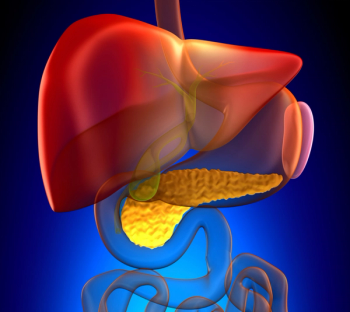
The assistant program director at Mayo Clinic discusses the significance of pharmacists’ role in health care, changes throughout the industry, and her passion for mentoring pharmaceutical students.

The assistant program director at Mayo Clinic discusses the significance of pharmacists’ role in health care, changes throughout the industry, and her passion for mentoring pharmaceutical students.

It is vital for health care teams to recognize the signs and symptoms of antiphospholipid syndrome and to identify the severity of a patient’s diagnosis based on their aPL profile.

An increase in cannabis use has led to growing concerns surrounding interactions between its components, THC and CBD, and prescription medications.

Pharmacists play a key role in the management of modern monoclonal antibody treatments for Alzheimer disease.

Pharmacists play a key role in migraine management, therefore, awareness of menstrual migraine-specific prophylaxis is important.

Pharmacists working with patients with mental health conditions are able to optimize medication use and improve adherence.

Major pharmacogenomics organizations continue to recognize the potential relevance of pharmacogenomics for psychiatric medication management, mainly due to its effects on pharmacokinetics.

Therapeutic drug monitoring is a growing and vital area for pharmacists to become involved in to increase patient success with inflammatory bowel disease remission.

STRONG-HF aimed to study whether rapid-dose escalation of guideline-directed heart failure medications was more beneficial than usual care.

Available pharmacological therapies have shown high efficacy in achieving weight loss.

Since the 2018 guideline’s publication, additional non-statin therapies such as bempedoic acid, evinacumab, and inclisiran, have been approved by the FDA for the management of hypercholesterolemia.


In the treatment of heart failure with reduced ejection fraction, combination therapy is the most effective in reducing all-cause death.

Data show that dose-response relationships and long-term safety of ICS in people with chronic obstructive pulmonary disease are unclear and require further investigation.

The implementation of genetic testing for patients prescribed medications associated with progressive multifocal leukoencephalopathy is likely to improve safety outcomes.

Different guidelines have notable differences between equivalency dosing of proton pump inhibitors (PPI), resulting in confusion and a lack of confidence between medical professionals recommending one PPI over another.

Finerenone is a first in class nonsteroidal mineralocorticoid receptor antagonist indicated in adults with chronic kidney disease associated with type 2 diabetes mellitus.

Trastuzumab deruxtecan was approved by the FDA for HER2-low breast cancer treatment in 2022 and could also benefit some patients with hormone receptor-positive or triple-negative disease.

Furosemide exhibits diuretic action by inhibiting sodium and chloride reabsorption in the proximal and distal tubules and the loop of Henle.

As evidence for omega-3 continues to develop, pharmacists remain poised to guide patients toward the most indicated, safe, effective, and convenient options available.

Cabotegravir showed promising results in preventing HIV transmission in men, women, and transgender women with similar rates of adverse events to oral PrEP options.

New continuous glucose monitor systems provide additional support and quality of life improvements for patients with diabetes.

The most common cause of death for patients with non-alcoholic fatty liver disease is cardiovascular disease, but it also increases the risk of hepatocellular carcinoma and may surpass hepatitis B and C as the leading cause of this cancer.

With many different classes of medications used in the treatment of major depressive disorder, pharmacists can have a significant impact on patients' lives, from counseling on medications to assisting with finding the right medication.

When diabetes is uncontrolled, higher percentages of hemoglobin become glycated, which causes elevated HbA1c and glucose levels to rise within the body.

Some of the most frequently noted biotin interferences are with immunoassays for thyroid markers, high-sensitivity cardiac troponin, and N-terminal pro-brain natriuretic peptide.

Chronic hypertension during pregnancy increases the risk of poor pregnancy and birth outcomes.

An expert panel led by moderator Dr. Cunningham identify substance use disorder, COVID-19’s role, and opportunities for pharmacists to help patients with resources for recovery.

Risankizumab-rzaa is the first and only specific IL-23 inhibitor approved to treat moderately to severely active Crohn disease in adults.

Meta-analysis of randomized controlled trials adds to growing evidence around certain antihypertensive drug classes showing promise for primary or secondary prevention of diabetes.